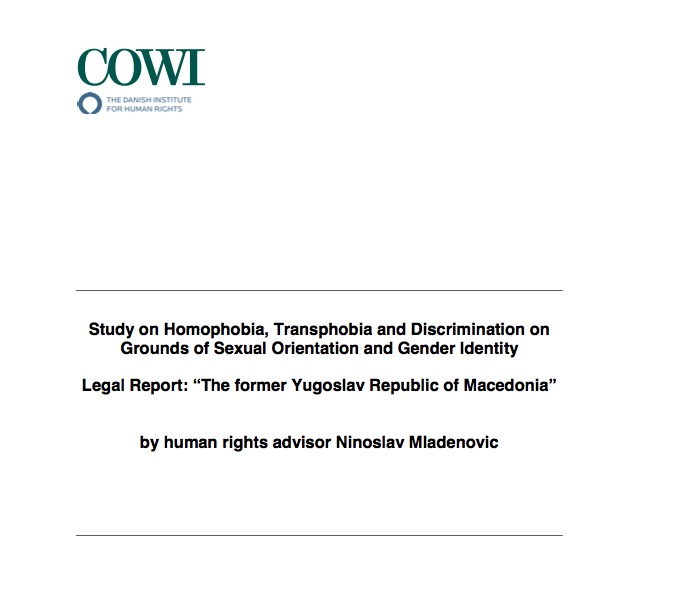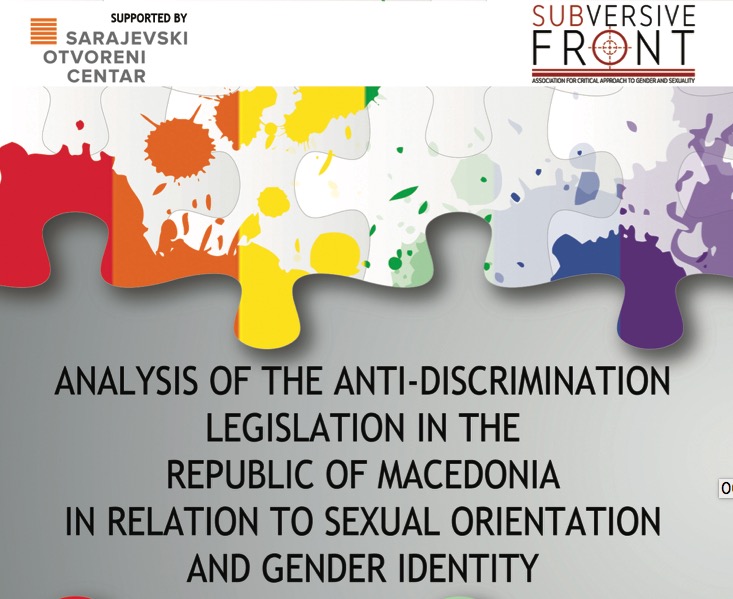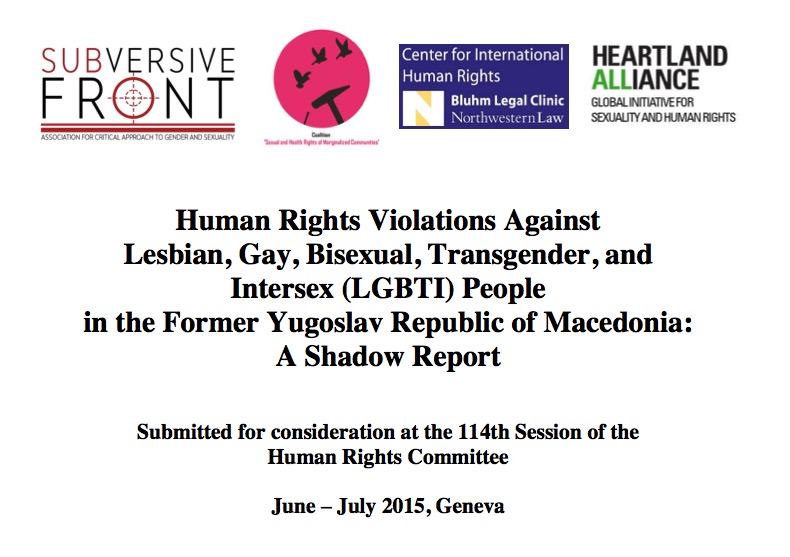LEGISLATIVE ANALYSIS RELATED TO LGBT RIGHTS AND HIV IN REPUBLIC OF MACEDONIA
Analysis of the Republic of Macedonia law and practice shows that some crucial parts ofthe national legislation correspond to requirements and obligations of the international and European human rights documents.
There are no any legal barriers to migration to the Republic of Macedonia for people living with HIV. Legislation does not impose on MSM restrictions in blood donation. Liability for HIV transmission is not explicitly differentiated in the Criminal Code, and included in liability for infection diseases transmission. Macedonian legislation also provides criminal liability for spreading material, promoting or stimulating hatred, discrimination or violence, based on sex, and violation of basic human rights and freedoms acknowledged by the international community and based on difference in sex, which is very significant step towards LGBT rights protection.
However, many gaps in the legislation and absence of proper regulations still lead to violation of PLWH, gay men, other MSM and trans* people’s rights. Explicit prohibition of discrimination on the basis of sexual orientation is only provided in the “Law on Labor Relations” and the “Law on Health Protection”, but not in the “Law on Preventing and Protection against Discrimination”, as the principal legal act that treats the subject of discrimination. Gender identity is not recognized as a possible basis for discrimination in any law. Keeping in mind prevalence in the Republic of Macedonia of stereotypes and prejudice against lesbian, gay, bisexual, trans* and intersex persons, it is very important to have explicit legislative rules that prohibit any form of discrimination on the grounds of sexualorientation and/orgender identity.
Legal practice also does not provide proper law enforcement in this sphere. Despite of criminal liability for offences against basic human rights based on the difference in sex, provided by the law, most of such cases were not properly investigated. This contradicts with 29th principle of the Yogyakarta Principles about appropriate, accessible and effective criminal, civil, administrative and other procedures and monitoring mechanisms to ensure the accountability of perpetrators for human rights violations, related to sexual orientation or gender identity as well as prompt and thorough investigation of violation cases. The situation can be effectively changed by establishing investigation procedures controls and teaching enforcement agencies to prevent and investigate offences in this field.











